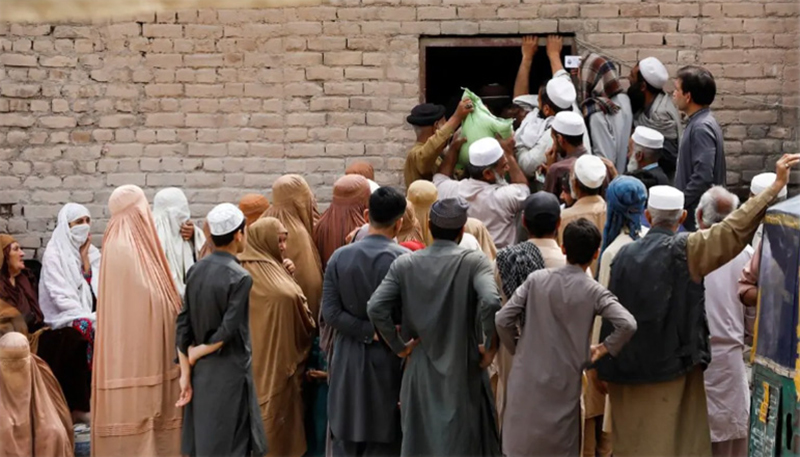 Pakistan
Pakistan
Tracing Pakistan’s policy of state-sponsored terrorism and consequences
In the complex landscape of South Asian geopolitics, the dynamics between Pakistan and India have often been characterized by tension, with the former’s obsession with its neighbor frequently taking center stage.
Over the years, this fixation has manifested in a knee-jerk reaction of blaming India for various internal issues.
However, a closer examination of Pakistan’s terror network reveals a disturbing reality: the country’s policy of supporting and encouraging terrorism within its borders to disrupt its neighbors has backfired, leading to a cycle of violence and unintended consequences.
The echoes of this policy reverberate back to a critical moment in history, specifically October 6, 2003, when US deputy secretary of state Richard Armitage commended Pervez Musharraf and Pakistan’s military for their efforts to dismantle the terror infrastructure. Ironically, even as praise was being heaped upon Pakistan, unknown assailants were eliminating extremists within the country. Azam Tariq, head of the banned Sipah-e-Sahaba Pakistan, fell victim to this shadowy violence, just one among many extremists targeted in a span of a few months.
This period marked a response to the post-9/11 era, where pressure from the US compelled Islamabad to act against Taliban and Al Qaeda militants. However, the mysterious killings did not bring an end to terrorism; instead, many militants sought refuge with terror groups operating in Jammu and Kashmir, perpetuating the cycle of violence.
Fast forward two decades, and Pakistan finds itself once again grappling with a new wave of targeted killings. What sets these recent events apart is the focus on individuals “wanted” by India, including ideologues and commanders associated with cross-border operations. The killings of figures like Paramjit Singh Panjwar, Abu Qasim Kashmiri, and Shahid Latif have thrust Pakistan back into the international spotlight.
Terror networks, by their nature, seldom protect their own, working on the principle of deniability. The recent spate of killings underscores a shift in Pakistan’s approach. Ashok K. Behuria, a security expert, notes that while killings in Pakistan two decades ago aimed to show non-support for terror, the current situation suggests a different stance. The vernacular media’s relative silence on these incidents raises questions about Pakistan’s perception of the issue.
While the elimination of certain figures may offer temporary relief for India, experts caution against prematurely letting the guard down. The killings may indicate a loss of utility for the ISI, but the larger players still find safe havens in Pakistan, keeping the specter of state-sponsored terrorism alive.
The Pakistani security establishment’s primary concern now centers around the “opportunistic partnership” between the Tehrik-i-Taliban Pakistan (TTP) and Baloch rebels. Growing suspicions of covert support to the TTP from Balochs, especially in border regions, pose a significant challenge. The Pakistani army, facing economic constraints, grapples with the increased threat, particularly as the TTP gains traction in Baloch areas.
The death of Lakhbir Singh Rode, head of the banned International Sikh Youth Federation and Khalistan Liberation Force, highlights the complex web of cross-border terrorism. Rode, who operated freely in Pakistan, collaborated with Canada-based criminals, engaging in acts of terror, including a rocket-propelled grenade attack in Mohali in 2022.
As the international community watches these developments, it remains to be seen how Pakistan will navigate the intricate web of its own making. The unintended consequences of fostering terrorism as a tool of statecraft have come full circle, leaving Pakistan to grapple with the fallout of a policy gone awry.
(Photo and text courtesy: Khalsavox.com)
Support Our Journalism
We cannot do without you.. your contribution supports unbiased journalism
IBNS is not driven by any ism- not wokeism, not racism, not skewed secularism, not hyper right-wing or left liberal ideals, nor by any hardline religious beliefs or hyper nationalism. We want to serve you good old objective news, as they are. We do not judge or preach. We let people decide for themselves. We only try to present factual and well-sourced news.







